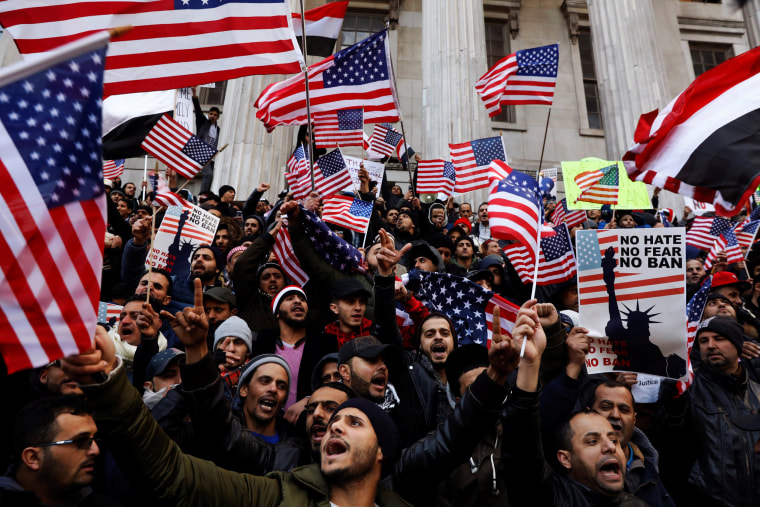President Donald Trump banned or restricted visas for travel to the United States from eight countries on Sunday, the next step in what began as his travel ban from six Muslim nations.
The new presidential order keeps restrictions on five of those six countries — Iran, Libya, Somalia, Syria and Yemen — lifts restrictions on visitors from the Sudan and adds new restrictions on visitors and immigrants from Chad, North Korea and Venezuela.
In a proclamation Sunday night, Trump blocked the issuance of all visas from North Korea and Syria, while blocking nearly all visas from Iran except those for students and exchange visitors. Issuance of all immigrant visas and business and tourist visas was suspended from Chad, Libya and Yemen.
The order also blocks visas for government officials on business or tourist travel from Venezuela. For Somalia, the order blocks visas for immigrants and provides that other travelers will be subject to extra scrutiny.
The restrictions take effect Oct. 18 for Chad, North Korea and Venezuela. For the five remaining countries, which were part of the original executive order, the exceptions to the visa ban imposed by the Supreme Court for close relatives will remain until Oct 18.
Rather than continue blanket bans, the administration said the new standards would be tailored to each country, based on factors like whether countries share information about travelers' criminal histories or use electronic passports with embedded traveler information. The government would consider lifting restrictions on one or more countries if they "have improved their identity-management and information-sharing protocols and procedures," according to the proclamation.
Raj Shah, the deputy White House spokesman, told reporters last week that the Department of Homeland Security gave Trump a list of noncompliant countries on Sept. 15.
Miles Taylor, counselor to acting Homeland Security Secretary Elaine Duke, said: "The goal is not to indefinitely block certain nationals from coming to the United States. It is to protect Americans until foreign governments do comply with our standards and no longer pose a risk."

"We had a range of countries, from total willful noncompliance and nonengagement to countries that maybe couldn't meet the requirements but were interested in doing so," Taylor said last week. "Some countries didn't even have the courtesy to say, 'Go fly a kite.'"
Critics, however, described the latest restrictions as little more than a repackaged “Muslim ban.”
"Six of President Trump's targeted countries are Muslim," said Anthony Romero, executive director of the American Civil Liberties Union. "The fact that Trump has added North Korea — with few visitors to the U.S. — and a few government officials from Venezuela doesn't obfuscate the real fact that the administration's order is still a Muslim ban. President Trump's original sin of targeting Muslims cannot be cured by throwing other countries onto his enemies list."
The U.S. Supreme Court allowed much of Trump's current order to stand in June pending arguments before the court on Oct. 10. The Justice Department said last week that it couldn't comment on how the revisions announced Sunday could affect the government's argument, citing the litigation.

